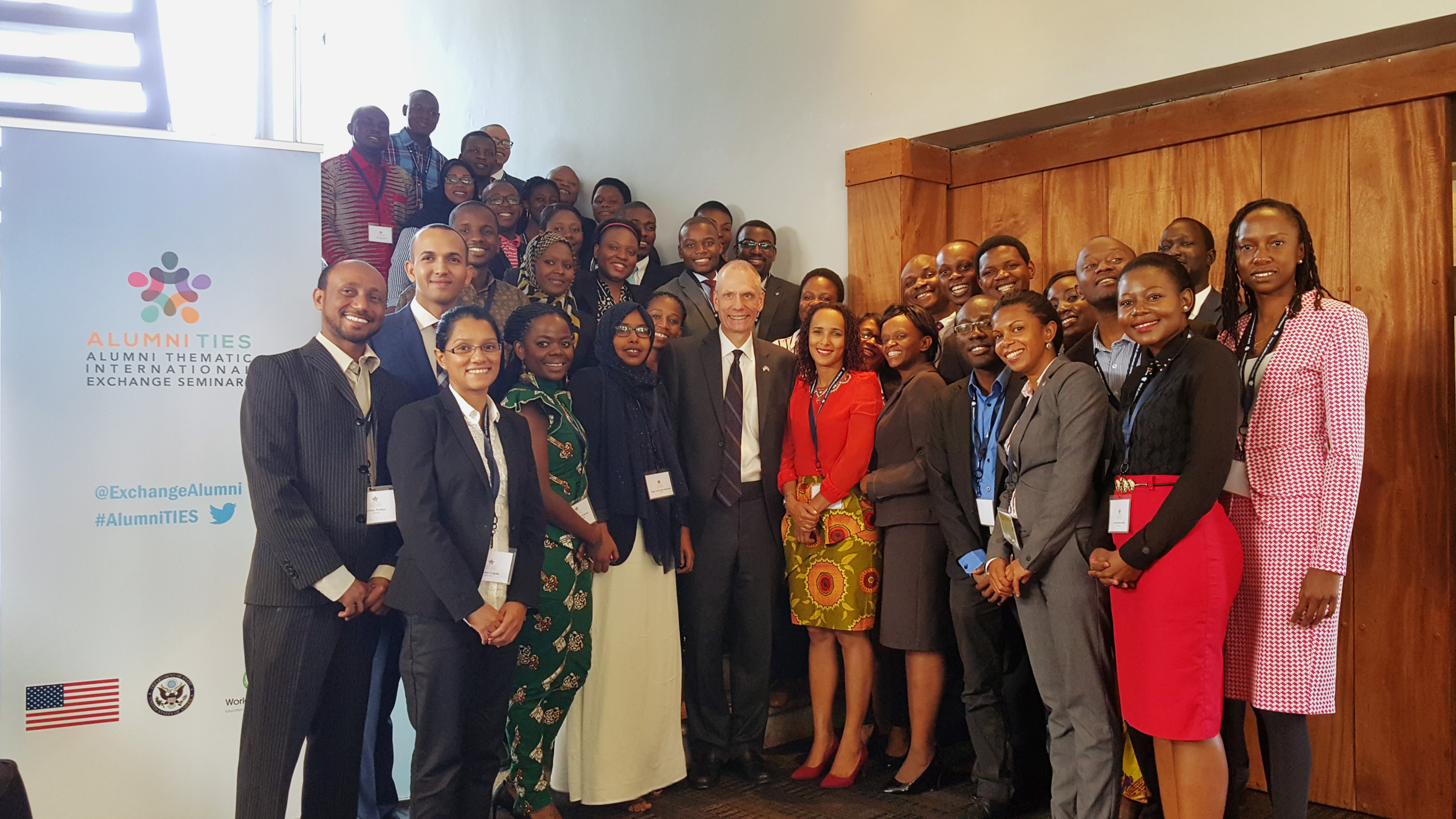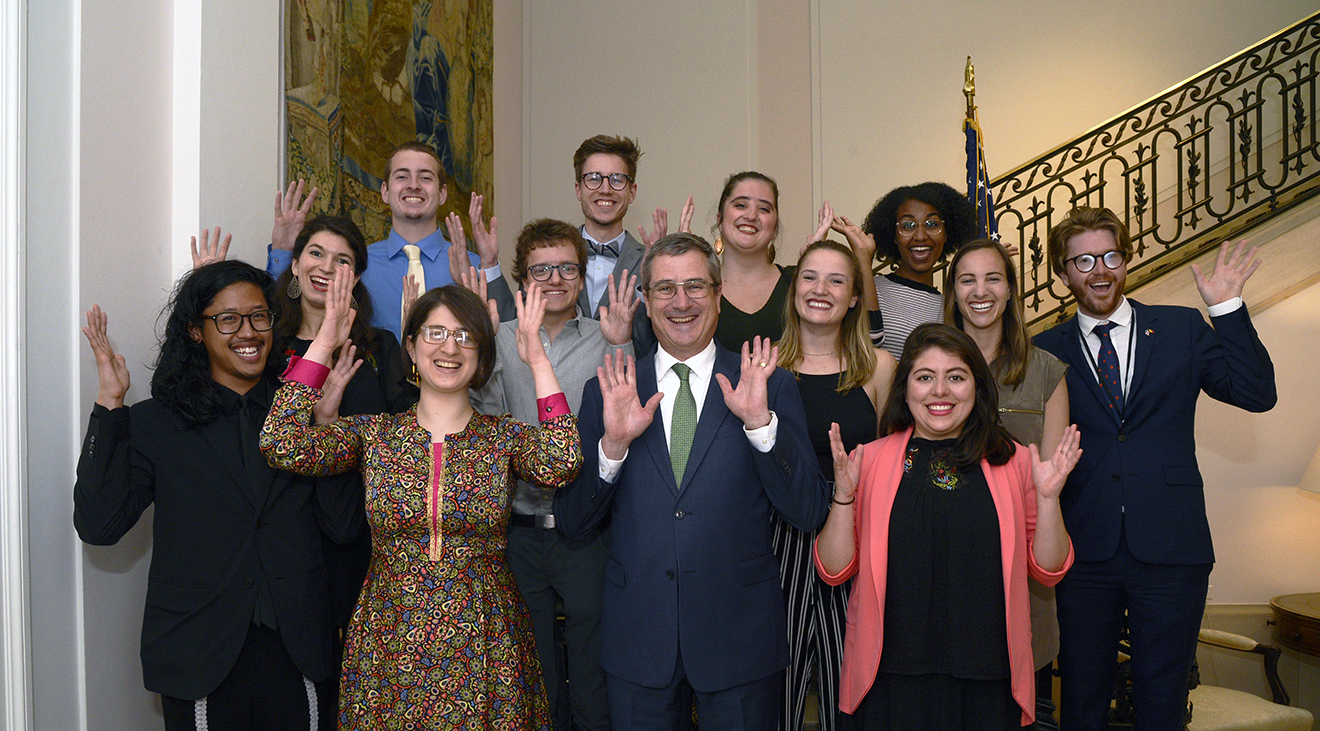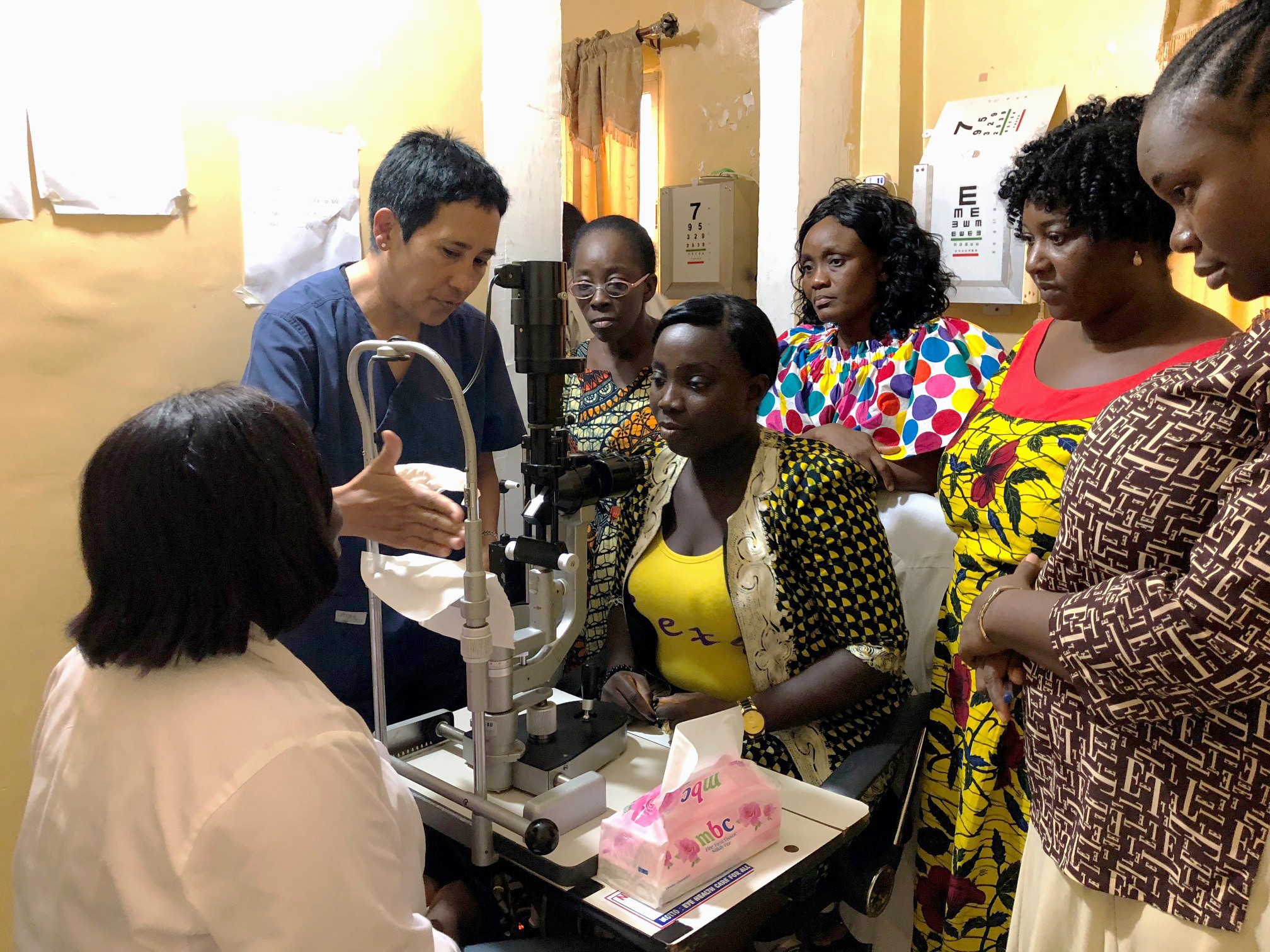World Learning LEAD Alliance fellow Kezang Dorji is not only one of Bhutan’s most popular rappers, he is fast becoming a global rising star. At age 19,while studying at Sherubtse College, he started to write and perform home-grown rap music with lyrics in English. Later, he switched to Dzongkha, to promote rapping in the national language, which no one was doing at the time.
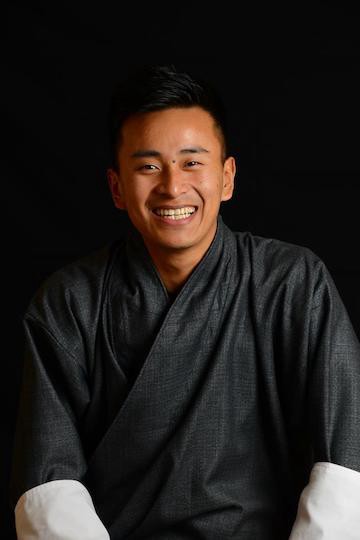
However, unlike many western rap artists, including Kezang’s hero Eminem, his message is positive and patriotic, seeking to inspire youth in the remote Himalayan kingdom to vote, work hard, steer clear of drugs and alcohol and serve the nation.
Since downloading beats from the internet and dropping his first rap song in 2011, Kezang, whose high school nickname was Rap, has produced two albums, a number of music videos, and is the first Bhutanese performer to go on national tour.
World Learning recently caught up with him, to learn more about his passion for rap music, why he believes it’s a good way to speak to the country’s youth and how LEAD Alliance helped him develop as an activist and positive change-maker in Bhutan.
Why were you drawn to rap music?
I came across a music video of Eminem at a friend’s place when I was in my mid-teens. I instantly liked it. I started listening just for fun and then found out that Eminem also had a story like mine. His parents were separated and he was also raised in poverty. I related to him and was inspired.
How has rap changed your life?
Rap music has changed my life in so many ways. People know me because of my music. But I am more passionate about social issues, like youth issues, equitable development, national identity, the environment and, actually, everything. I just want fairness. I use my status as an artist to share my concerns about issues affecting society. Rap music gave me opportunities to be a part of youth networks at home and abroad.
The lyrics of your songs are quite different from Eminem and most rappers. Why did you go your own way?
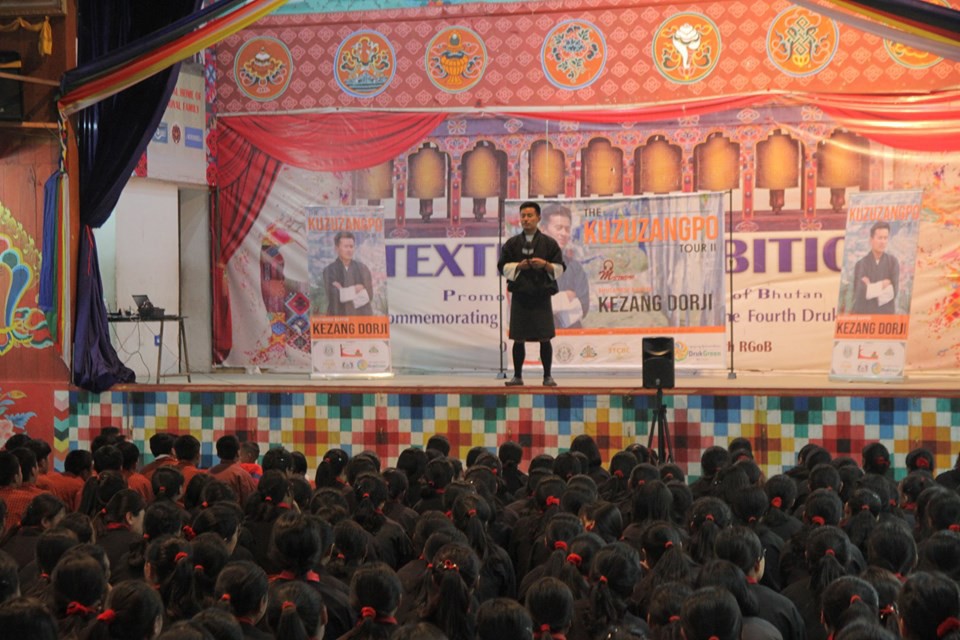
Music is a very powerful medium. It influences listeners in ways artists may not even think of. If we spread hate and use slang, young listeners would think it is okay to do so too. Aspiring artists who look up to such artists are going to copy them. Then it’s a chain reaction and a culture of music that promotes hatred will be born. Such music only leads to animosity.
What does it take to be a rap artist?
Anyone who can write and rap can become a rapper. All one needs is skill and a beat. With the internet it’s much easier to get songs out. To me, what makes an artist stand out are the subjects they touch.
What do you do when you’re not rapping?
I am a corporate performance analyst by profession. I rap when I’m not working.
Bhutan has a very small music industry catering to a small population so it’s hard to be a full-time musician. My job puts food on my table. I am a musician solely as a hobby.
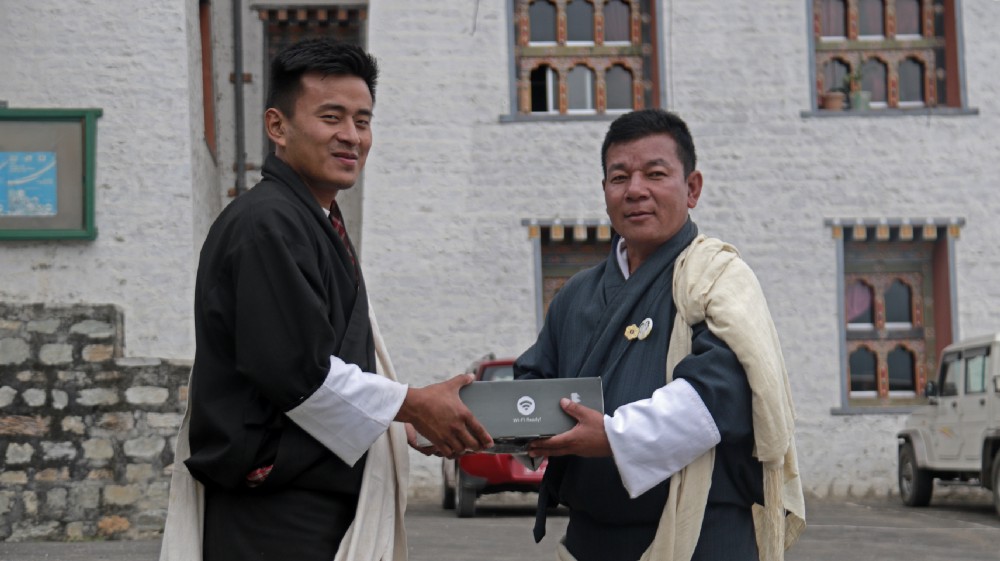
I also spend my time doing social work, because of what I experienced and saw growing up. I come from the eastern part of the country from a remote village where life is very difficult. I have been through challenges that many in privileged or urban parts of the country may not imagine.
As a kid, it was very clear to me that when I grew up I would do something about bringing change to the lives of underprivileged youth. I am keeping that promise. I work on projects to promote youth issues and try to capitalize on my status as a public figure to create awareness.
You were a fellow of World Learning’s LEAD Alliance in 2017. What were your biggest takeaways from the program? How did it support your activism?
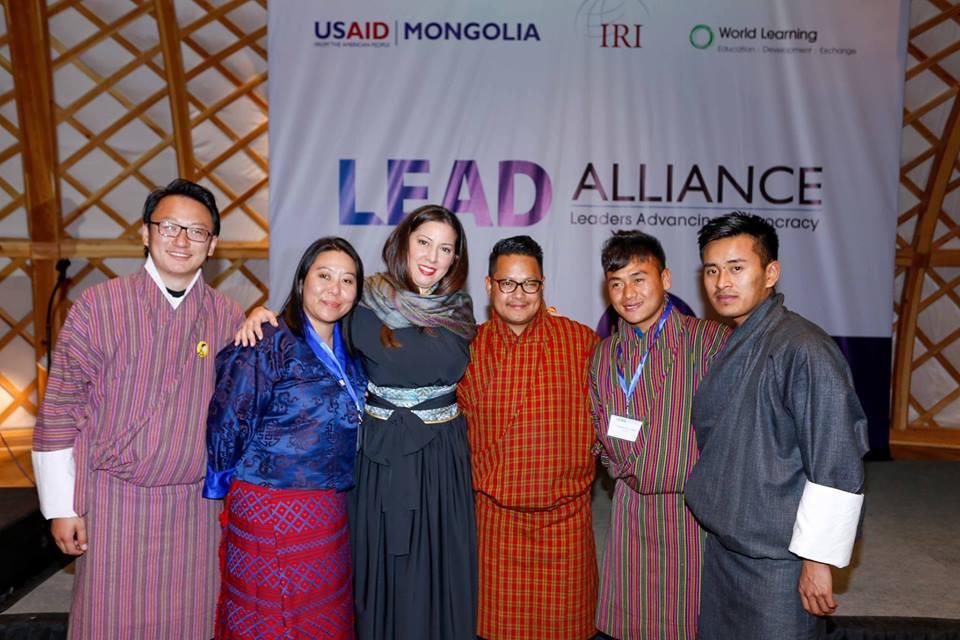
The LEAD Alliance 2017 was the first international youth summit I attended. I learned a lot about advocacy and got a lot of inspiration learning about the work of youth leaders in other countries. I also learned the importance of networking and forged lifelong friendships with youth representatives from other countries on the program.
The LEAD program was like a springboard for me to participate in other youth programs supported by the U.S. government and World Learning through the International Republican Institute (IRI). That same year, I had the opportunity to attend the Generation Democracy Jakarta Academy and the Global Summit of Generation Democracy in Austria in 2018. What I learned from LEAD and other programs continues to influence my work and will benefit me for the rest of my life. I remain very grateful for all these opportunities.
According to the U.N., 60 percent of Bhutan’s population is under the age of 25. What are some of the social and economic challenges facing such a young country?
Youth always has been a concern of our lawmakers and senior bureaucrats. We also have many government agencies and CSOs [civil society organizations] working to make things better for youth. I appreciate their efforts. However, I still see a lot of room for improvement. I’ve been speaking out about the absence of a national Youth Action plan. We need a plan listing all initiatives with deadlines to address specific youth issues and fulfill specific objectives. Bhutan’s Youth Policy is currently being reviewed and I am hoping this will be addressed.
A bright spot is the National Service for youth that will begin in 2022. I am optimistic that this program will alleviate many pressing concerns including youth delinquencies and youth unemployment through vocational training.
What do you wish people knew about Bhutan?
I wish everyone in the world knew about the principles of good karma embraced by many people in Bhutan. Our daily lives and even the development philosophy of Gross National Happiness are guided by the principles of karma. Bhutan is a peaceful and harmonious country. If everyone lived by such principles imagine what a happy a place the world would be.
What’s next for you?
There isn’t any exact plan, but I will continue making positive music and working on youth projects. With time, I hope to take on larger projects.






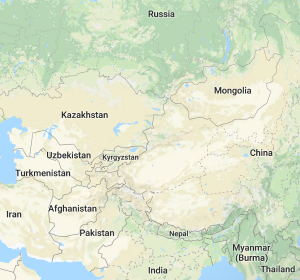 Why Mongolia?
Why Mongolia?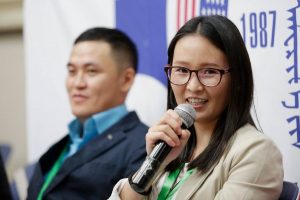 Since early 2017, they’ve also gone on to share their experiences as changemakers with their peers across the region as part of the LEAD Alliance. LEAD Mongolia partnered with the International Republic Institute (IRI) to introduce the LEAD Alliance, in which LEAD Mongolia Fellows serve as mentors to other young emerging leaders in Bhutan, Kyrgyzstan, and Myanmar. LEAD Mongolia fellows help LEAD Alliance fellows implement projects in their countries. Fellows from both programs also gather for collaboration and networking at an annual summit in Ulaanbaatar.
Since early 2017, they’ve also gone on to share their experiences as changemakers with their peers across the region as part of the LEAD Alliance. LEAD Mongolia partnered with the International Republic Institute (IRI) to introduce the LEAD Alliance, in which LEAD Mongolia Fellows serve as mentors to other young emerging leaders in Bhutan, Kyrgyzstan, and Myanmar. LEAD Mongolia fellows help LEAD Alliance fellows implement projects in their countries. Fellows from both programs also gather for collaboration and networking at an annual summit in Ulaanbaatar.